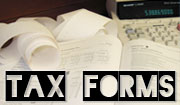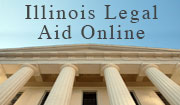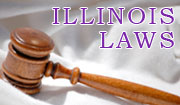Libraries

Censorship - Nonpolitical
A Guide to Finding Government and Legal Information
Web version of this guide includes links to web resources.
Search Tips:
Mix and match these terms in searching the library catalog, WestCat , or use them to search journal articles and law reviews via the library's Databases page. You can also use them to search government information sites listed on our Starting Points page - click the tab and pay particular attention to the Top Six.
- censorship
- Federal Communications Commission
- Federal Trade Commission
- freedom of expression
- net neutrality
- mass media
- pornography
- obscene words
- Internet
- social media
- first amendment
- freedom of speech
- violence
- art
- music
- obscenity
- religion
- education
- television
- truth in advertising
- radio
Related Topics:
- Bill of Rights
- Free Press
- U.S. Constitution
An important source for many research topics is Congress. Congressional committees and subcommittees hold hearings on a wide variety of controversial and timely subjects. Simply add the word "hearing?" to a search string in WestCat .
Search Engines
Google
and
StartPage
Use these search engines to search for government information by typing "site:gov" in the search box preceding your search terms:
- site:gov "Freedom of Speech"
- site:mil censorship
Law Review Articles and Annotations
Law reviews are an important resource for legal topics like this one. They can lead you to laws and cases as well as discuss legal theory. A few law journals are indexed in multidisciplinary databases, but the best bang for your buck will be to search LexisNexis Academic which provides full-text access to many hundreds of law reviews.
Federal Government Information
The White House, the Networks, and TV Censorship
Conservatives get up in arms over a law they wrote, and which passed almost unanimously, that allowed the Office of National Drug Control Policy to purchase air time for anti-drug PSA's and also required pro bono air time from the networks, which ONDCP forgave (and which is explicitly allowed in the law) if shows with anti-drug scenes or themes were aired - with ONDCP pre-approval for the credit. House members wondered for which other governmental policies the Networks would be willing to sell out.
http://purl.access.gpo.gov/GPO/LPS5185
Y 4.C 73/8:106-91
The White House, the Networks and TV Censorship
An interesting case on the Office of National Drug Control Policy providing funds to networks that air programs with strong anti-drug messages. The question that follows is how this creates competition between networks and lessens programming diversity. The ONDCP has a large written testimony in defense of their actions. 2000.
Y4.C73/8:106-91
The Religious Broadcasting Freedom Act and the Noncommerical Broadcasting Freedom of Expression Act of 2000
A hearing dedicated to fighting the FCC's decision to limit religious broadcasting on noncommerical channels. Arguments arise as to what the difference is between cultural and educational. 2000.
Y4.C73/8: 106-121
Television Ratings Systems
This hearing debates whether or not the current television ratings system is efficient. The arguments in this hearing discuss the ratings system and what changes could be made without censoring television programs. 1997.
Y4.C 73/7:S.HRG.105-157
Legal Information
Freedom of Speech, Press, & Assembly
This is a good primer on the history and development of many of today's First Amendment Issues. For each issue studied, a discussion, case decisions, and conclusion are presented. Every subject is approached from several directions. Includes an intro about philosopher John Stuart Mill and the development of the Supreme Court. 1994.
LEGL REF KF 4770 .M39 1994
The First Amendment's Limitations on the Use of Internet Filtering in Public and School Libraries: What Content Can Librarians Exclude?
This article examines how to approach the issue of internet-filters on library computers. There is controversy stemming from whether the computers are public or private, the amount of discretion a librarian is entitled to, and the capabilities of the filters. Altogether a very complex and interesting debate. 2000.
Texas Law Review Vol. 78, No. 5 p. 1117-1157.
Law of the Internet
Chapter eight of this book looks at topics associated with censorship. Obscenity laws, child pornography, and indecent speech are just three of the topics highlighted in this chapter. Summaries of cases, statutes, and issues are also given.
LEGL REF KF 390.5 .C6 S771998
Schoolhouse Decisions of the United States Supreme Court
This book contains thirteen edited court decisions written in plain English. Each decision also contains a reference to the unedited court decision. One of these cases deals with banning school library books. Another is about censoring student newspapers.
LEGL REF KF 4118 .S35 1997
Smolla and Nimmer on Freedom of Speech
This treatise offers a thorough examination of freedom of speech theory and doctrine. Kept up-to-date through 2012.
LEGL REF KF 4772 .N 54 1996 vols. 1 & 2
http://www.wiu.edu/libraries/govpubs/guides/censorship.php
Subject Guides
- FDLP LibGuides
- Abortion
- Adoption
- Advertising and the Law
- Affirmative Action
- Agriculture
- AIDS
- Alcohol and Related Problems on Campus
- Alternative Dispute Resolution
- Alternative Medicine
- Americans with Disabilities Act
- Animal Research and Humane Care
- Asset Forfeiture
- Aviation Safety
- Capital Punishment
- Censorship - Nonpolitical
- Censorship - Political
- Child Abuse
- Child Care
- Children and Television
- Citizenship & Immigration Services
- Cloning
- Confined Animal Feeding Operations
- Cookbooks
- Cuban Missile Crisis
- Cybercrime
- DNA
- DNA Testing of Criminals
- Domestic Violence
- Drinking and Driving
- Drone Warfare
- Drug Legalization
- Drug Testing
- Earthquakes (Illinois)
- Eating Disorders
- Elder Abuse
- Electronic Surveillance
- Endangered Species and Wildlife Conservation
- Euthanasia
- Federalism
- Financial Crisis
- Flag Desecration
- Gangs
- Global Warming
- Gulf War Illness
- Gun Control
- Hate Crimes
- Hazardous Waste Disposal
- Health Care Reform
- Homelessness
- Home schooling
- Homosexuals in the Military
- Intellectual Property
- JFK Assassination
- Juvenile Justice
- Korean War
- Learning Disabilities
- Literacy
- Methamphetamine
- Occupational Health and Safety
- Operation Desert Shield/Storm
- Police Misconduct
- Pornography
- Prison Reform
- POW and MIAs
- Problems of Adolescence
- Product Liability
- Rape
- Reproductive Technology
- Same-Sex Marriage
- School Prayer
- School Violence
- Seat Belts
- Sexual Harrassment in Education
- Sexual Harrassment in the Workplace
- Sexual Orientation Discrimination
- Small Business
- Space Exploration
- Terrorism
- Tobacco
- Unmanned Aerial Vehicles
- Vietnam War
- Violence in Mass Media
- Welfare Reform
- Women in Business
- World War I
- World War II




